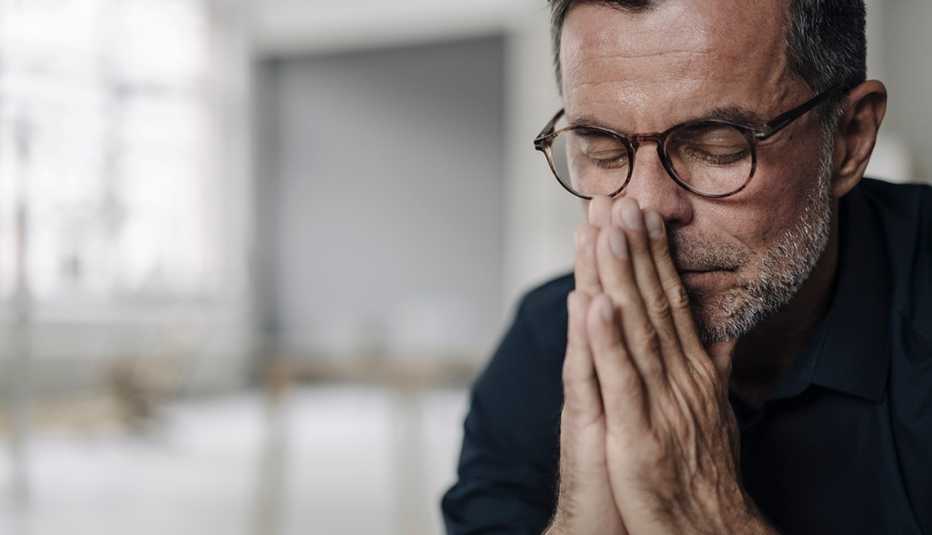Staying Fit


You head to your local grocery store and the shelves are empty of canned and frozen foods. Your usual social activities have been canceled, and the news is a constant stream of alarming stories about how the spreading coronavirus is upending life as we know it. Add to that the fact that older adults are particularly vulnerable to complications from COVID-19, the disease caused by the coronavirus, and you have a perfect storm for anxiety.
"This has been a big anxiety trigger for a lot of people,” says Stewart Shankman, chief psychologist in the Department of Psychiatry and Behavioral Sciences at Northwestern University, of the coronavirus outbreak. But he and other mental health experts note that it's important to learn how to handle anxious thoughts, and get help if necessary — in part because anxiety can impede the body's ability to fight infection.


AARP Membership— $12 for your first year when you sign up for Automatic Renewal
Get instant access to members-only products and hundreds of discounts, a free second membership, and a subscription to AARP the Magazine.
"Anxiety suppresses the immune system,” says Jane Timmons-Mitchell, associate clinical professor of psychiatry at the Case Western Reserve University School of Medicine in Cleveland. “So anything we can do to not be anxious is helpful."
These ideas from the experts may help keep your anxiety under control.
Limit news consumption
It's important to know the facts and what you can do to protect yourself and to take all precautions — but it's not going to help stress levels to obsessively watch the news, says Shankman.
"The biggest source of anxiety is uncertainty,” he says, “not knowing what's going to happen, when it's going to happen, how long this is going to last. And we don't know. So, trying to know, trying to resolve that uncertainty, is counterproductive. It's going to make you more anxious.”
Shankman says that he's not suggesting denial.
Rather, it's “sort of accepting this is the current situation and not letting it interfere with your life."
Practice calming techniques
Different people relax in different ways, but if you feel particularly anxious you might try deep breathing, taking a warm bath, or sitting with your pet, says Neda Gould, assistant professor of psychiatry and behavioral sciences at Johns Hopkins Medical School. “Alternatively, try mindfulness: bringing attention to the experience and kind of allowing it to be there, and not judging it and knowing that it will pass.” If you need mindful or meditative guidance, try free apps such as Calm; Breethe; UCLA Mindful, an app developed by the University of California, Los Angeles, Mindful Awareness Research Center; and Mindfulness Coach, from the U.S. Department of Veterans Affairs.

































































More on Health
How to Take Care of Your Mental Health
New problems may arise as the pandemic progressesHow to Prevent and Control a Panic Attack
It can be scary when your anxiety suddenly gets the best of youFamilies Worry About Loved Ones in Nursing Homes, Assisted Living
Officials continue to bar guests to protect vulnerable residents from coronavirus